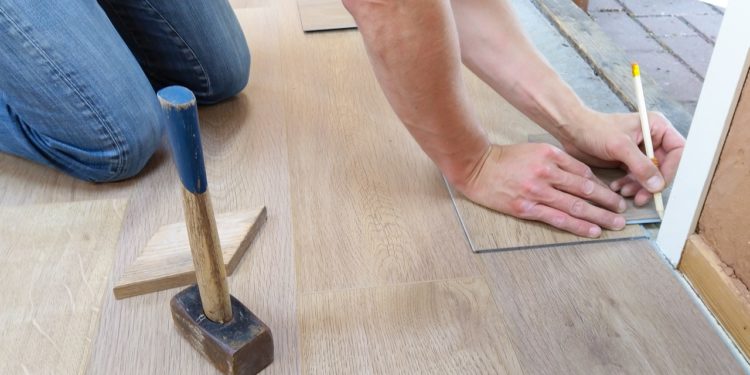The Impact of the Coronavirus on Flooring Businesses

A single virus has slowed down and stopped businesses worldwide. CoronaVirus Disease 2019 (COVID-19) is a virus originating from Wuhan, China. During the eve of the new year of 2019, China alerted WHO of an unknown virus spreading pneumonia in a province of 11 million people. A few days later, the virus slowly spread in China. After four months since the virus spread, the whole world struggles to contain this virus. The spread of the virus has caused massive impacts on people’s lives.
The virus affected numerous businesses. Various governments from different countries implemented shutdowns and lockdowns to control the spread of the virus. These policies forced several industries to slow down temporarily. In some countries where the pandemic is severe, businesses inevitably shut down for the time being.
In the UK, many businesses are affected, as well. The flooring industry is not an exemption, despite the government offering coronavirus support for tradespeople. Here are some of the impacts of the new virus on the flooring business in the UK and worldwide.
Very Little to No Business
Many countries implemented strict policies that severely affected businesses. In most countries, home and community quarantines are in effect. Governments advise citizens to stay at home as much as possible. Other countries even implement forced quarantines. Social distancing, voluntary self-isolation, and contract tracing are also prevalent in most countries.
How does this affect the flooring business? Due to the increased risk of transmitting the disease, many customers are afraid to do business with companies. Some clients choose to let the virus pass before engaging in any flooring projects. Some might even put their current projects to a hold. Aside from the fear of transmission, certain restrictions from the government burden many businesses. Due to these restrictions, some companies may also even be mandated by the government to halt down their services.
Problems with Suppliers
China is one of the leading suppliers of wood and similar materials. Some countries in Asia are major import suppliers. The laws and restrictions in China and the surrounding region affect companies worldwide. Any restrictions and policies instituted in these countries affect the supply chain for flooring businesses worldwide.
Many businesses and factories in China are not working at full capacity. For instance, many factories that produce and process materials experience delays due to the lack of workers. Many of their workers either chose to isolate themselves or were ordered by the government to do so. Many business experts say that some Chinese factories only produce as low as 10-20% of their original production. At most, some Chinese producers may work at 70% of their original capacity. In disease-stricken areas, some manufacturing plants may even be halted by the government.
Aside from the actual production, delivery and arrival of flooring materials experience many delays. Since there are fewer workers from different fields, including shipments, transportation of these materials are significantly slowed down. The closing of many country borders will also have a significant impact on logistics. Delays in shipping schedule and delivery dates are expected due to the pandemic.
Lack of Materials
Because of the lack of suppliers and the decrease in production, many flooring companies experience lack of flooring materials. The dwindling supplies can cause flooring companies to experience a total halt of their services.
However, not all companies are experiencing difficulties, or at least not yet. Some of the companies that supply flooring materials like Ultra decking UK expected the impacts of the growing pandemic. These businesses increased their warehouse capacity within the past few months in preparation for the spread of the coronavirus. Regrettably, we don’t know how long the virus will last. Businesses need to maintain constant communication with suppliers to ensure that their materials won’t run out.
Due to the decline of production, prices of these materials may also hike. If the demand exceeds the supply of these materials, expect higher prices for flooring materials. Within a few months, if the situation does not improve, supply will be severely limited.
Positive Awareness and Innovations on Flooring Materials
While the majority of the effects of the pandemic are negative, there is still some positive outcome of this event. Because of the spread of the virus, people have become aware of the importance of cleanliness. People will want to keep their homes free from viruses and bacteria. It’s impossible to achieve a home without germs and viruses. However, there are ways to minimize them. Some of these ways start from the flooring of the house. Some flooring materials are more susceptible to viruses and bacteria. Likewise, some are more sanitary and less prone to germs and viruses. Some materials are also easier and safer to clean than others.
For instance, many flooring experts believe that luxury vinyl flooring will be a better alternative than traditional flooring. Unlike wood and laminates, vinyl flooring can withstand cleaning solutions without being damaged. The material itself is also polished with an antimicrobial finishing.
Another good material to avoid bacterial growth is cork flooring. Cork flooring is biodegradable and resistant to dust and toxins. This is perfect for keeping bacteria and virus at bay. Cork flooring is also cheaper compared to other flooring materials. These thick materials also protect the owner from falls and other potential accidents. However, they are not as durable as the other materials and need to be replaced in every couple of years.
Many other flooring materials prevent the growth of bacteria and germs. Since people now recognize their worth, demand for these materials will go up. Expect the development of more materials that can withstand viruses and germs.









